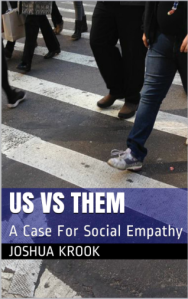Ping pong. Bean bags. Free lunch.
I’ve spent two months researching the psychological tools companies use to get employees to work longer hours for free. This builds on my previous work on social psychological research and law including my first book: Us vs Them: A Case for Social Empathy.
In my research, I’ve discovered that companies use the same techniques as casinos to get employees ‘hooked’ to a job’s rewards, regardless of its merits. In the biggest corporate firms, psychological rewards are what keep people at their desk late at night and away from their families. Understanding these psychological rewards can help us resist them, fight back and create the work-life balance most of us want. From my research, I have discovered three core principals that companies use to psychologically manipulate their staff.

The Catch
The largest corporate firms first need to ‘catch’ employees, by enticing them using various forms of psychological rewards, punishments and stimuli. This stage is all about image, status and prestige. Think cruise parties, wine and dine events, luxurious dinners and glamorous offices. Much like a slot machine, the idea is to overload the brain with positive stimuli, to the point where our logic and rationality are diminished. Psychological studies reveal that we are drawn to these kinds of images of status and prestige and they can override our hesitation or scepticism about a person or an idea. Any reservations we have about joining a company can be override at this early stage.
The Reward
New employees at major companies are often sceptical about long working hours, no overtime pay and/or unethical business practices.
To overcome these objections, companies begin to use psychological rewards that trigger a reward-feedback mechanism, much like those found in addictive gambling technology, slot machines and casinos.
In the 1930s, B.F. Skinner discovered that mice, like humans, can become addicted to almost anything if you set up the right reward-feedback loop. The key is the triggering of ‘dopamine,’ the hormone that gets us ‘hooked’. It’s the same hormone that hooks drug addicts to heavy drugs.
Big companies typically adopt the following reward mechanisms:
- Free lunch
- Free drinks
- Free yoga after work
- Ping pong in the office
- Bean bags
- Free taxis home if you work late.
- Free dinner if you stay late in the office.
The Band-aid
After several years of work, employees at the largest corporate firms begin to experience burnout. The effect of extremely long working hours begin to show in earnest, most often, in the form of psychological problems: depression, anxiety and other mental illnesses.
At this stage, companies begin to invest heavily in band-aid solutions. These are one-off psychological tricks that make employees think that they are the problem:
- Free psychology/counselling services.
- Mindfulness
- Retreats
- Yoga in the office
Read more of my writing in my book: “Us vs Them: A Case For Social Empathy”.
Follow me on Twitter: @JoshKrook


